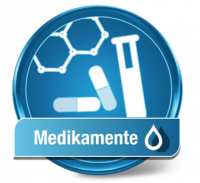No results were found for the filter!
 Water analysis pesticides
Water analysis pesticides Test whether you have pesticides or herbicides in your drinking water. Small amounts of these get into the drinking water again and again. Our pesticides drinking water test includes eight common pesticides and biocides, as well as the...
CHF299.00
 Water analysis Glyphosate
Water analysis Glyphosate Glyphosate is the main component of several total or broad-spectrum herbicides used primarily in agriculture to kill weeds. It is produced both as an acid and as a salt. Its effect on human health remains controversial: the WHO's...
CHF295.00
 Water analysis medicines
Water analysis medicines Test whether there are residues of medicines in your drinking water. Small amounts of these get into the drinking water again and again. Our drinking water analysis medicines includes 12 common medicines. Reasons why a water analysis can...
CHF229.00
 Water analysis bacteria
Water analysis bacteria To ensure perfect water hygiene, a water test can be useful. Bacteria can get into tap water in a wide variety of ways and represent a potential hazard. In particular, the total number of bacteria in the water is often increased in...
CHF95.00
 Water Test Legionella
Water Test Legionella A legionella test is compulsory for many apartment buildings. This is because Legionella can cause serious diseases in humans. You can therefore test your water for Legionella too! Why is a Legionella test useful? The bacteria can get...
CHF95.00
 Water Analysis Baby
Water Analysis Baby With the Water Analysis Baby, you can quickly and easily determine whether your tap water is suitable for preparing baby food. Because some parameters that can occur in drinking water are particularly dangerous for babies and pregnant...
CHF92.00
The laboratory analysis for your well water determines its relevant chemical ingredients. Through natural and human influences (climate, agriculture, rocks and industry) numerous substances such as nitrate, manganese or ammonium get into...
CHF103.00
Test your water with the Opti water test and thus contribute to improved water hygiene. Your water is examined for toxic heavy metals in the laboratory, nutrients are also recorded and the water hardness is determined. Why a laboratory...
CHF101.00
The water test Ideal tests your tap water, among other things, for corrosion-indicating substances and possible pollutants that can get into your drinking water, especially from the pipe material. Why should a water test with laboratory...
CHF84.00

 The water’s origin
The water’s origin